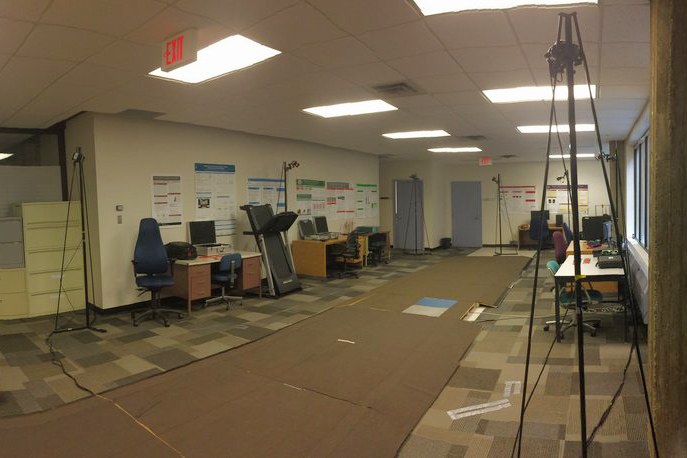Research seminars by Dr. Hossein Rouhani from University of Alberta organized by the BIOMEC Lab
Apr 26, 2019
The week from April 29th to May 3rd Dr. Hossein Rouhani, principal investigator of the Neuromuscular Control & Biomechanics Laboratory at University of Alberta (Canada), will visit the BIOMEC Lab.
The week from April 29th to May 3rd Dr. Hossein Rouhani, principal investigator of the Neuromuscular Control & Biomechanics Laboratory at University of Alberta (Canada), will visit the BIOMEC Lab. In the frame of this visit, the researcher will give two seminars:
Seminar 1: Kinematics and kinetics assessment of multi-segment spinal column: Estimation and compensation of motion capture errors
In-vivo measurement and interpretation of inter-vertebral angles and moments are important for clinical evaluations and developing injury prevention and rehabilitation strategies. Motion assessment of the human spinal column using linked-segment models can enable estimation of inter-vertebral angles and moments. However, the application of conventionally used multi-body dynamics measurement and analysis approaches for multi-segment spinal column is prone to experimental errors because of inaccuracies in (i) kinematic measurements associated with soft tissue artifacts and (ii) estimating individual-specific body segment parameters. This seminar proposes modeling approaches to estimate the propagation of these experimental errors into the calculated inter-vertebral angles and moments, and presents the inter-vertebral angles and moments during multi-directional trunk bending after compensate for these errors.
Date and place: 29/04/2019, 15:00, Aula CREB (4.13), ETSEIB-UPC
Seminar 2: Wearable technologies for health monitoring: Technology development to clinical implementation
Human movement measurement provides objective information about movement disorders and thus is widely applied for clinical evaluations. Despite the accuracy of gait laboratory equipment, there is limited measurement space in most gait laboratories. In-field movement measurement using wearable sensors is preferred for clinical evaluations because it allows for long-term testing during daily life. In addition, wearable sensor technology allows for real-time clinical applications such as falling prevention and mobile health monitoring during daily life. This presentation will introduce a systematic approach to the development of wearable systems for daily activity monitoring. Examples of the developed wearable technologies, their validation against in-lab equipment, and their suitability for clinical evaluation of movement disorders will be discussed.
Date and place: 03/05/2019, 12:00, Aula CREB (4.13), ETSEIB-UPC
About the speaker: https://www.ncbl.ualberta.ca/hossein-rouhani

Share: